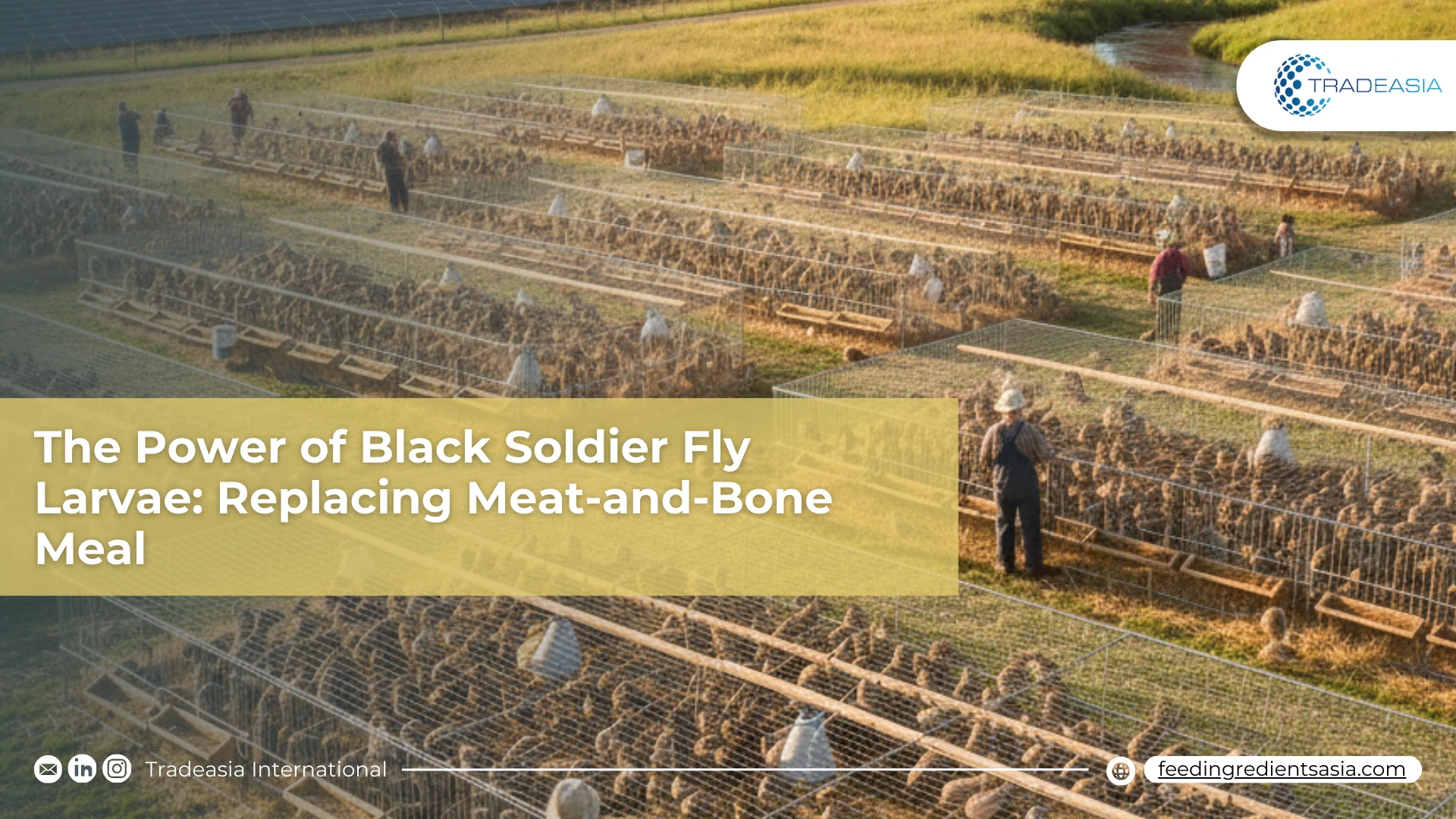The Power of Black Soldier Fly Larvae: Replacing Meat-and-Bone Meal

Table of Content
-
Research Study on Black Soldier Fly Larvae in Quail Feed
-
Nutritional Benefits for Egg Composition and Amino Acid Levels
-
Sustainability, Import Substitution, and Future Applications in Poultry
A team of Russian scientists from the Kazan Academy of Veterinary Medicine has urged the feed sector to explore the possibility of replacing meat-and-bone meal and imported feed additives with black soldier fly larvae. They conducted an experiment involving three groups of laying quails, each consisting of 21 birds. The first group was fed regular feed, the second group received the same feed supplemented with 3% naturally dried larvae, and the third group’s feed contained 7% larvae. After a two-month trial, the egg composition was analyzed using gas chromatography.
The results revealed that adding black soldier fly larvae to the feed produced significant improvements. Specifically, eggs from quails given the larvae supplements showed increases in lysine content by 17%, methionine by 16%, and tryptophan by 21%. Additionally, the levels of certain fatty acids rose, with linoleic acid increasing by 25% and linolenic acid by 250% compared to the control group.
The researchers highlighted that cultivating black soldier flies for poultry feed offers a practical approach to reducing reliance on imports. At present, Russia imports about 95% of its feed additives, mostly from China. The scientists stated that this environmentally friendly alternative not only addresses import substitution but also enhances the nutritional quality of quail eggs, boosting essential amino acids by up to 21%. They added that breeding larvae demands fewer resources than producing meat-and-bone meal, with the insects growing rapidly and recycling organic waste, which creates a closed-loop production system where the waste serves as nutrients for further insect growth.
The Kazan State Agrarian University expressed confidence that this technology could also be applied to chickens, ducks, and turkeys. While progress in Russia’s insect industry has been slow, with commercial mass production yet to begin despite investor interest, this study was conducted under a state assignment from the Russian Ministry of Agriculture. This suggests that the government still supports the development of insect-based feed solutions.

Leave a Comment